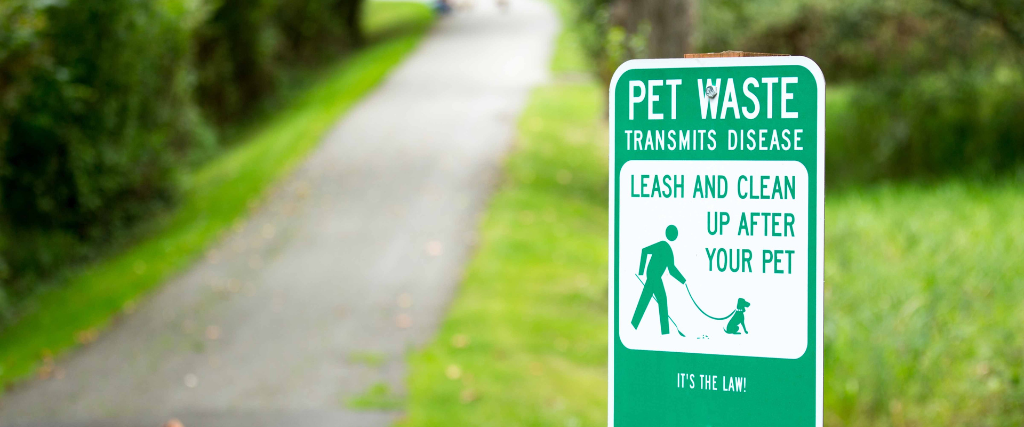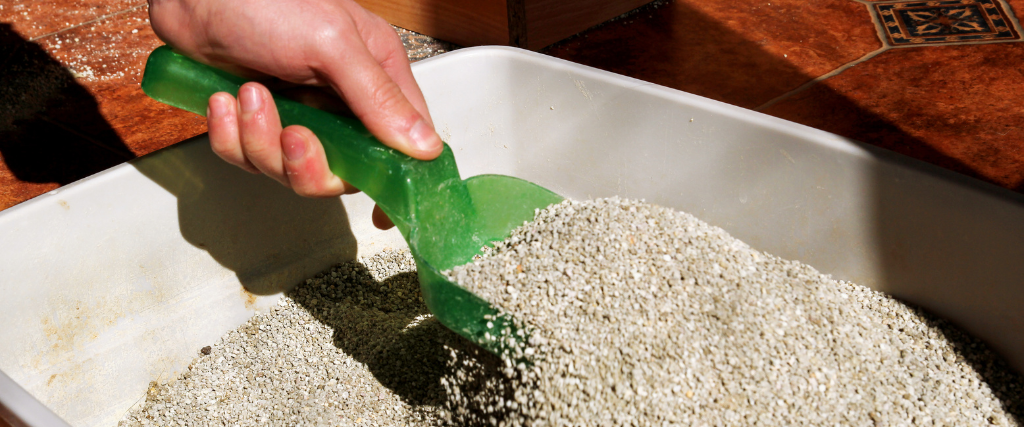Oh, Poo! Why It’s Essential to Immediately Clean Up After Your Pet
What your pet leaves behind after elimination is something pet owners would rather ignore, but paying close attention is an essential part of keeping them healthy. Pet owners should be just as interested in their pet’s bowel habits as veterinarians, as they tell a lot about what might be happening inside. From hygiene to early detection of worms, taking a look instead of turning a blind eye could mean the difference between a healthy pet and an unwanted ailment.
Following are several reasons why a thorough and consistent clean-up plan is essential to your pet’s health and longevity.
Attracting the Wrong Kind of Guests
Leaving feces behind, outdoors or in a litter box, will quickly attract bugs. One or two flies often go unnoticed, but excrement attracts an abundance of flies within minutes, especially during the warmer months. Once they’ve located the feces, they will likely pursue your pets as a food source. Flystrike happens when an animal becomes a host for flies to lay their eggs. This can ultimately lead to the tips of your dog’s or cat’s ears bleeding, or worse, an infection with fly larvae (maggots), which is painful and requires veterinarian attention. This situation is avoided by keeping your yard free of pet feces.
Maintaining Hygiene
Dogs and cats will not allow feces anywhere near where they eat or sleep. If they accidentally step in their mess or a mess left behind by another animal, they will lick it off themselves as part of their instinctive grooming process. Aside from this being stomach-churning, this is unhealthy as it could make them very sick. As feces sit out in the environment, it begins to grow organic matter that could harm your pet. Likewise, if you have a water supply nearby, it could lead to contamination.
Preventing Worms
There are several types of intestinal parasites that your pets can acquire from fecal matter left in the environment. Some of these parasites are zoonotic, meaning they can be passed from pets to humans. This poses a significant risk to households, especially those with children, seniors, or health-compromised individuals.

The following types of parasites infect a dog through feces:
Roundworm is common in puppies, which they acquire through their mother’s milk or across the placenta. Roundworms are easily found in almost all environments. They are intestinal parasites with eggs that can survive for years and hatch inside the host when ingested.
Whipworms are another parasite that isn't as symptomatic as other intestinal parasites but can cause extreme damage to the intestines. They measure approximately ¼-inch long and make their home in a pet’s intestines, where they attach to the lining and cause extreme irritation.
Hookworms are intestinal parasites that live in a pet’s digestive system and feed on the pet’s blood. Its eggs are ejected into the digestive tract and can be passed into the environment through feces, thereby infecting more pets.
Coccidia is more common in puppies and senior dogs, but can also infect healthy adult dogs. Gastrointestinal distress is the most common sign of this protozoan parasite, with feces often including blood and mucus.
Giardia is found in moist environments, which means that leaving feces on the ground to be washed away by rain or sprinklers will spread giardia to grass and puddles where dogs are likely to acquire the protozoan parasite. The best way to prevent the spread of giardia is by picking up your dog’s feces immediately so the cysts don’t have a chance to spread throughout the environment.
The American Kennel Club provides further detail on the various types of parasites and related symptoms.
Depending on your pet’s lifestyle, it’s a good idea to have your dog or cat fecal-tested for parasites every six to twelve months. If intestinal parasites are identified, your veterinarian will recommend a dewormer. Over-the-counter dewormers do not treat them effectively, so save your pet distress and take the expert advice of your veterinarian. Several of these parasites can be avoided with monthly preventatives prescribed by your veterinarian.

Identifying an Issue
You don’t need to be a veterinarian to know that something isn’t right with your pet when you notice an unusual bowel movement. With a consistent clean-up routine, pet owners get to know what their cat or dog’s feces typically look like, which means any deviation from the norm is a red flag.
Normal pet feces are:
- Firm (not hard) and tubular
- Consistent in color (brown)
- Long segments
Abnormal pet feces are:
- Soft to the point that it’s hard to pick up and leaves residue behind
- Liquid in consistency
- Inconsistent in color, with red or black being particularly alarming
- Coated in mucus
- Round pellets
Feces that has been sitting outside for a few hours can be challenging to assess in terms of normalcy. While it’s something a pet owner doesn’t love doing, a quick peek at what you clean up immediately after elimination can help your pet maintain optimal health.
What about the litter box?
Cleaning the litter box once a day helps in determining if anything is off with your cat. Leaving feces in a litter box for too long means the litter starts doing its job and the feces becomes harder to assess.
The following litter box abnormalities are a warning sign:
- More or less feces in the litter box than usual
- Stool is different than what’s typical of your cat
- Shape, consistency, and/or smell is different
If you have more than one cat, it can be difficult to determine which cat is experiencing an issue. The rule of thumb is two litter boxes per cat, plus one. Cats prefer to use their own litter box, when there are enough available. Paying attention to which cat is using which litter box will help you understand which cat might be sick. If you’re still uncertain, you may need to separate the cats for a day or so with their own litter box.
If you have outdoor cats, they can be trained to eliminate in a specific area. This helps to keep all their excrement in one area, making it easier to clean up and providing an opportunity to notice any possible medical issues.
If you have any further questions about your pet’s feces, we will help you to get to the bottom of it!
Don't have a vet in your area yet? We can help you find a local veterinarian.


